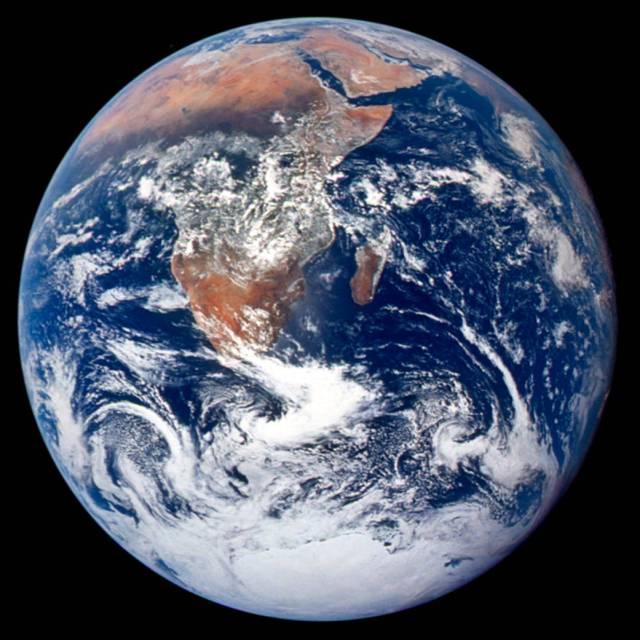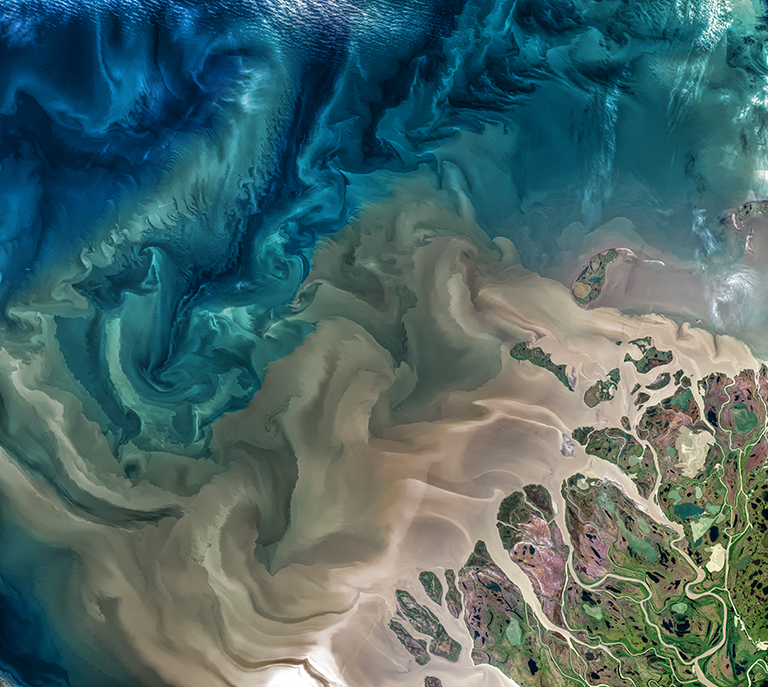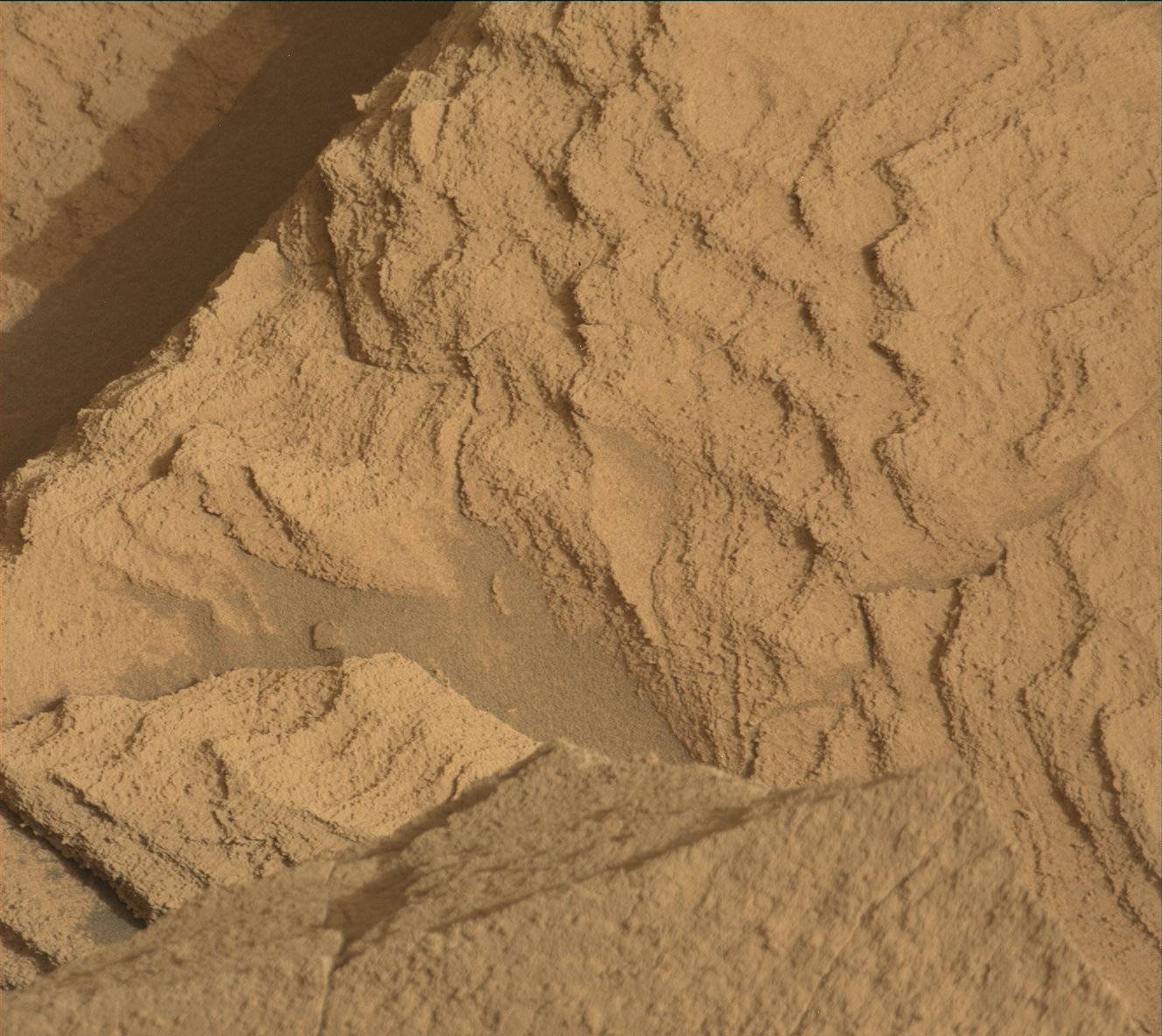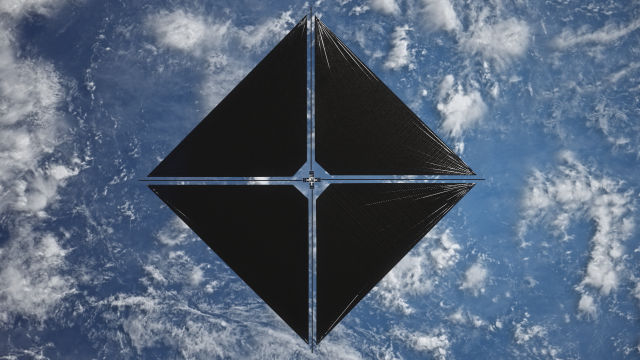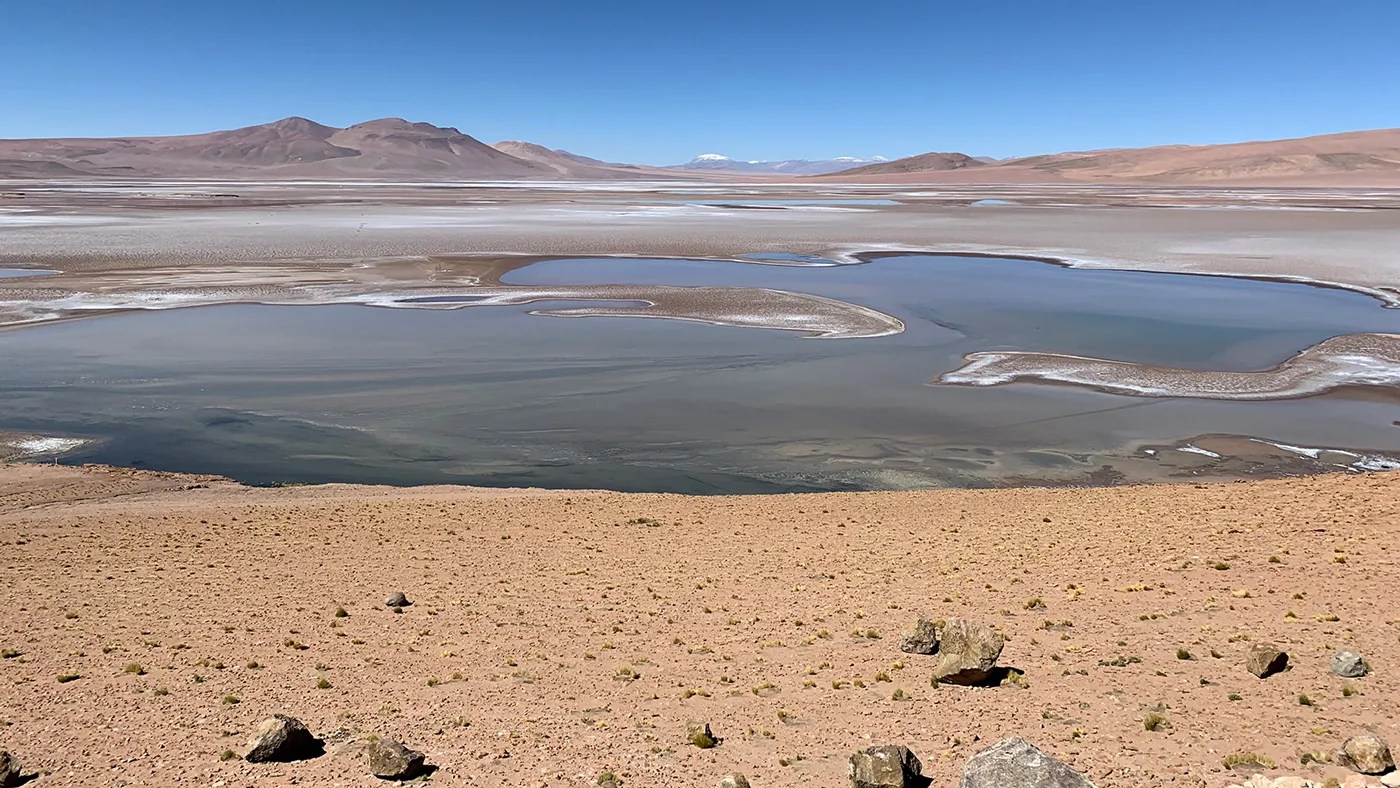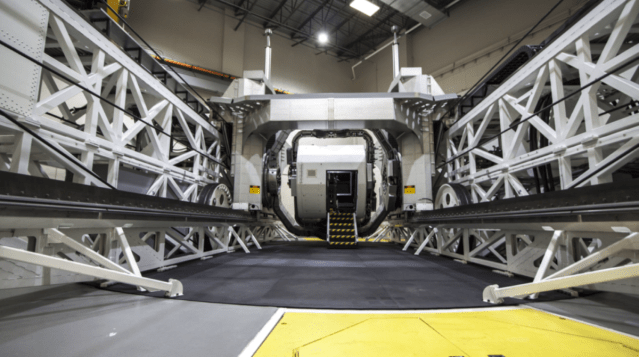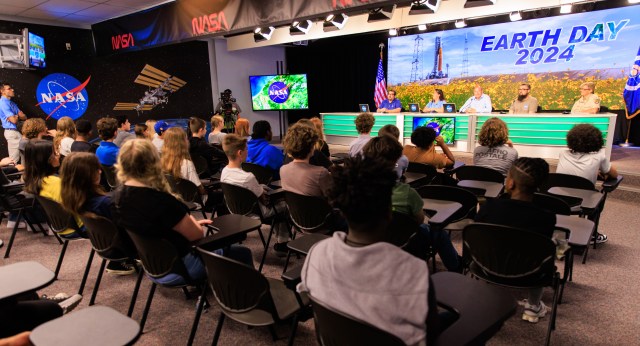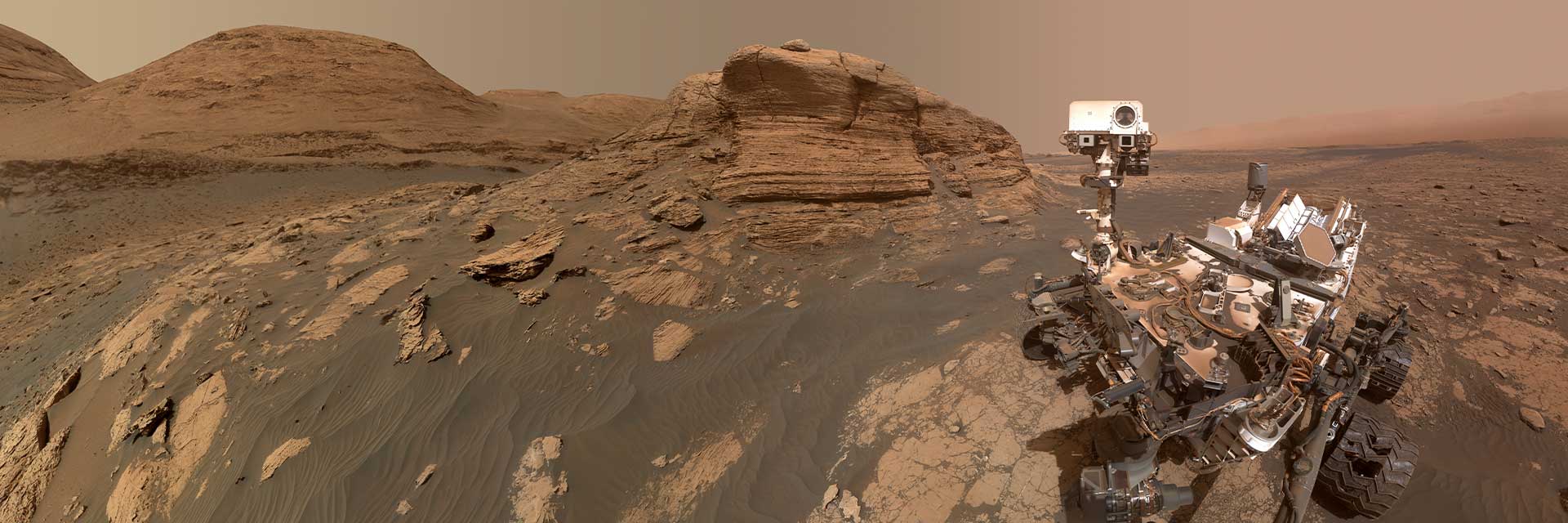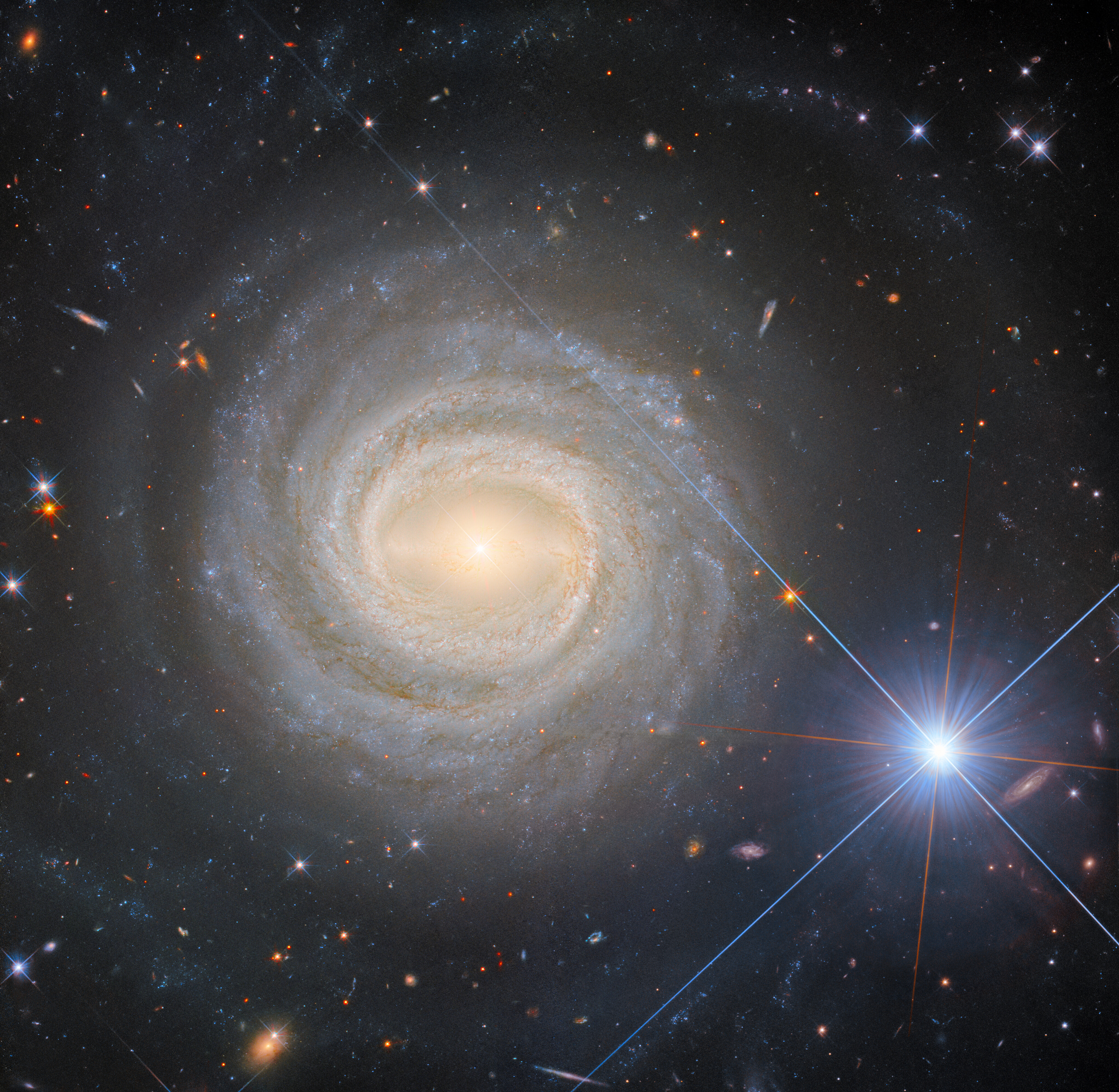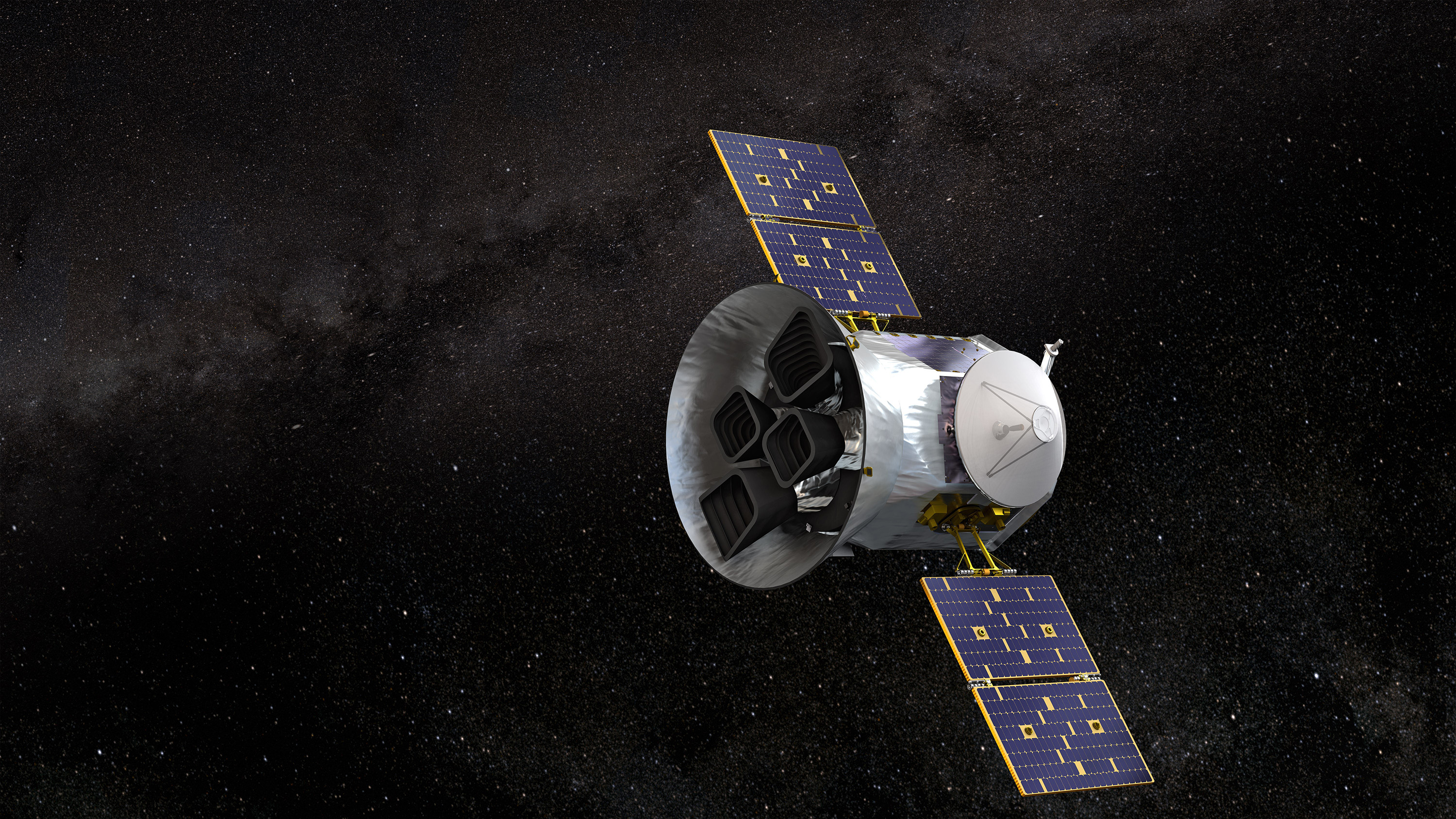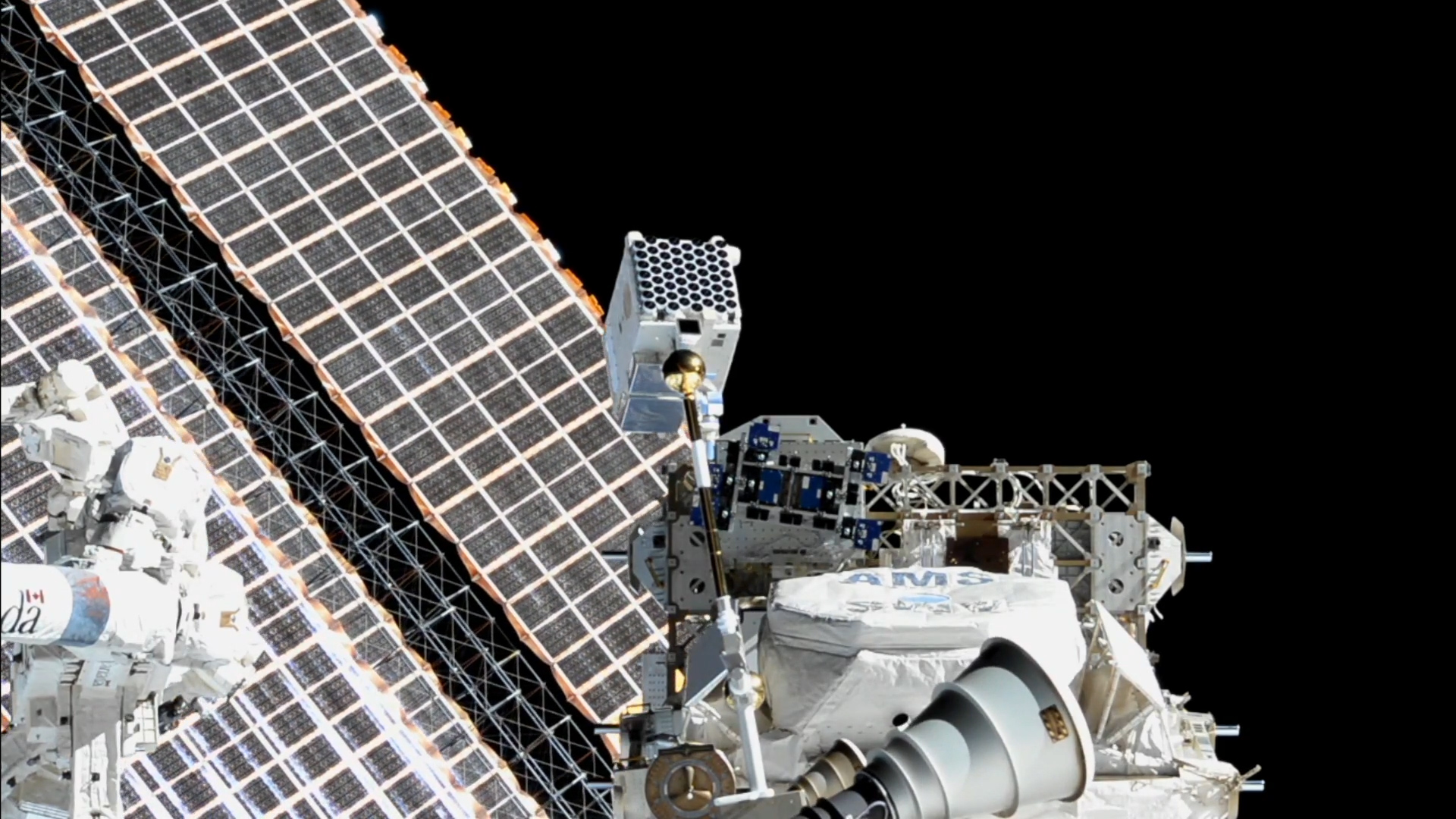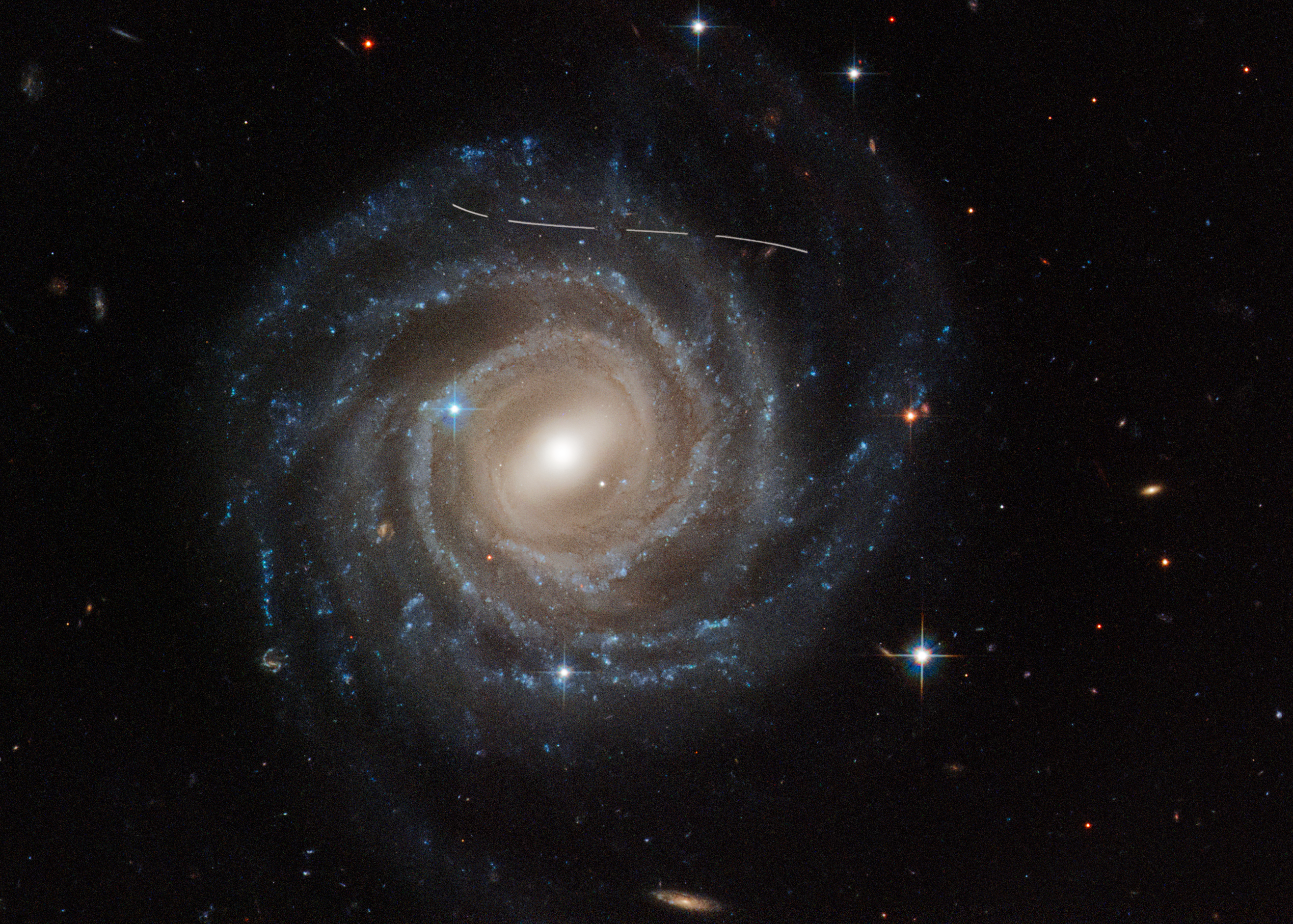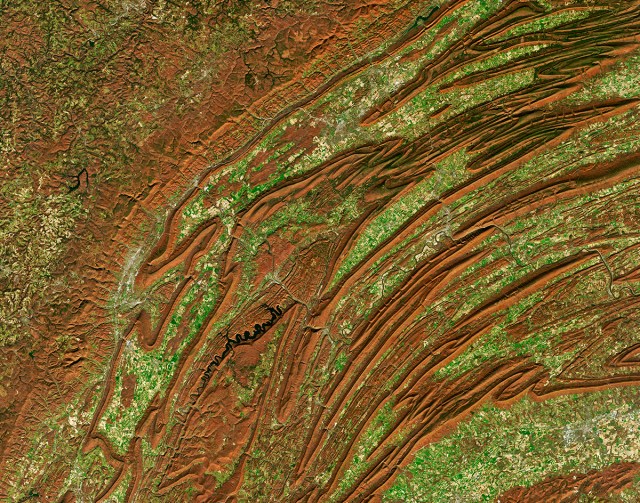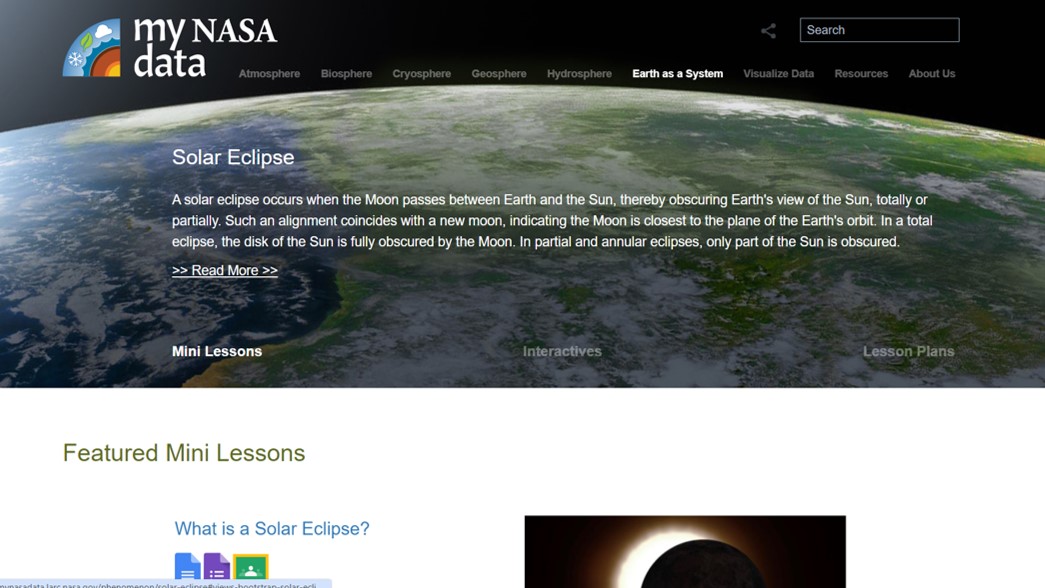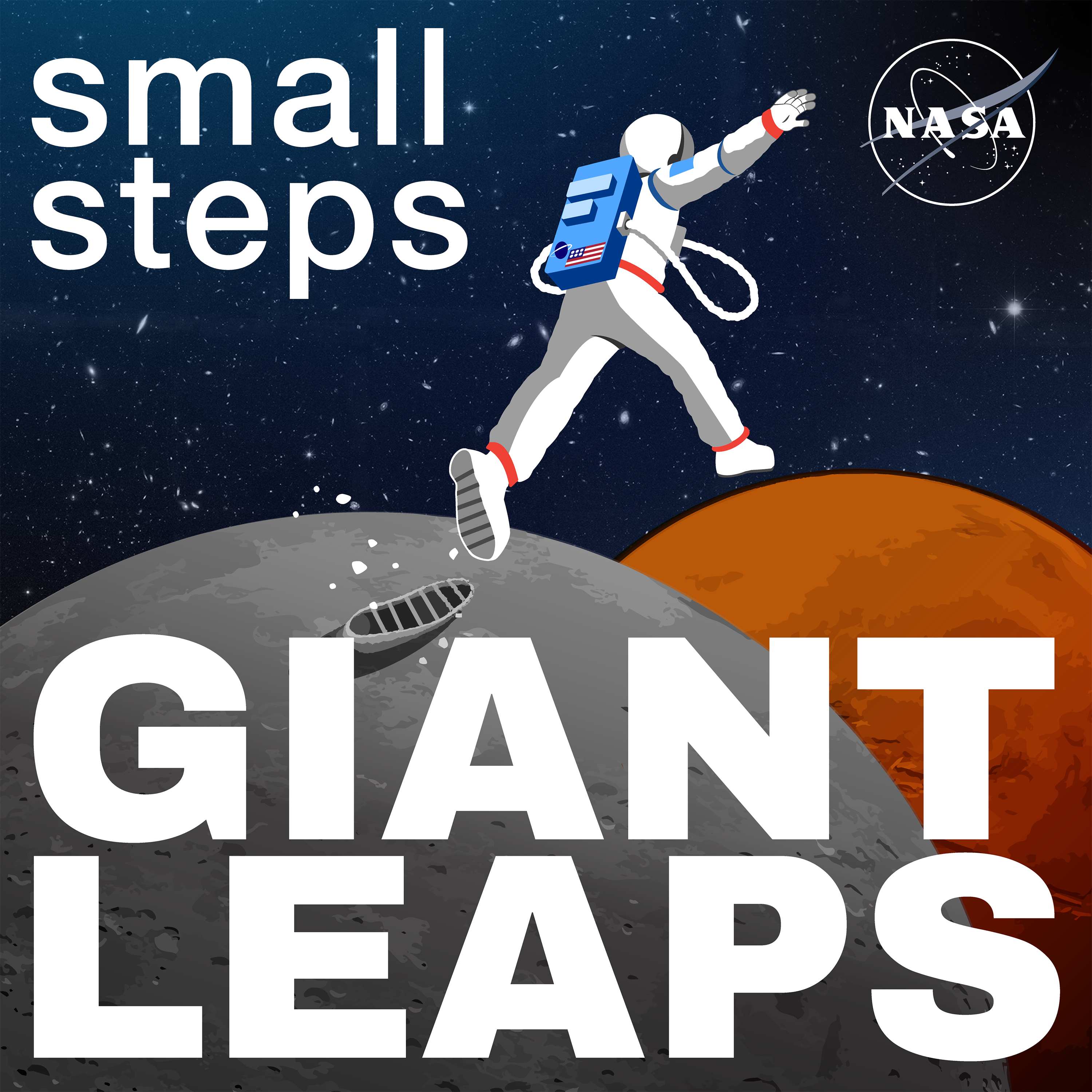NASA Intern Nick Syracuse discusses his virtual internship experiences.
Nick Syracuse: Having out-of-this-world mentors, which are very, very, very common and very frequently found at NASA, I will tell you that is so important because they’re guides for you. They’re really there to help you, to grow your aspirations, to grow your career, to influence you and motivate you to continue to do more and drive your passion forward.
I’ve had an incredible experience with overwhelming amounts of support, understanding, and mentorship that’s just shown me so many different possibilities at NASA.
The most important thing I think you have to remember is that being yourself and being true to your passions and your drive and everything that excites you about NASA is the reason that you’re going to stand out.
Deana Nunley (Host): Welcome to Small Steps, Giant Leaps, a NASA APPEL Knowledge Services podcast where we tap into project experiences to share best practices, lessons learned and novel ideas.
I’m Deana Nunley.
National Intern Day — Thursday, July 29 – is a national celebration dedicated to recognizing and celebrating the future leaders of the world: interns.
NASA Intern Nick Syracuse is an undergraduate senior at North Carolina State University, studying biochemistry and biology with a minor in Italian. He’s currently serving as a research associate in the Space Life Sciences Training Program at NASA’s Ames Research Center and joins us now to discuss NASA internship experiences.
Nick, thanks for chatting with us.
Syracuse: Deana, it’s an absolute pleasure. Thanks so much for having me on, and I’m so excited to chat with you today.
Host: How would you describe your NASA internship experience?
Syracuse: Absolutely transformative. Unforgettable, life-changing, the dream, everything that growing up you think it would be. It’s been a different experience granted that my experiences with NASA have all been virtual and I’m excited to chat about that as well, but even in a virtual environment, I’ve found it to be life-changing in terms of career, academics, and even personally. I’ve met some fabulous people and have definitely formed some lifelong relationships that I’m already cherishing and I can’t wait to see and explore next.
Host: And so you’ve had multiple internships with the agency?
Syracuse: That’s right. That’s correct. Yeah. And in a variety of different organizations as well.
Host: Could you tell us about the organizations that you’ve supported as an intern, maybe talk about some of the similarities and differences that you’ve noticed as an intern in multiple NASA organizations?
Syracuse: Absolutely. I think NASA really demonstrates their sense of community a lot. That’s one major similarity that I’ve noticed between the organizations. Personally, I’ve supported NASA in a variety of different capacities. First, as a volunteer intern, as a part-time intern through the Virtual Student Federal Service helping out NASA’s Aeronautics Research Mission Directorate, NASA Headquarters. And that was a very different experience compared to my traditional OSTEM or OSSI or NIF internship at Kennedy. And then now as part of a program at SLSTP out at NASA Ames. They’re all three very different organizations with three different pipelines with three different leadership hierarchies and a variety of differences amongst them in terms of the material. But overall, at each NASA center, there’s such this overarching reach of community and understanding and the mentorship is truly out of this world at all three places.
I’ve had many different experiences at each of the three places in terms of the projects I’ve worked on, the fields of study I’ve worked on, and the type of people that I’ve worked with, whether it’s research, whether it’s communication, whether it’s knowledge management, a lot of different facets of STEM and science. But that being said, even at each one of these places, I’ve had an incredible experience with overwhelming amounts of support, understanding and mentorship that’s just shown me so many different possibilities at NASA. I think that’s one thing that’s so rewarding about the internship experience at NASA. That being an intern shows you that it’s not all exactly what you see online and in different places. NASA loves all kinds of people from all different backgrounds in research and science and academics. And it’s not just a specific major or a specific field that you must perform.
And I remember growing up thinking it was all slide rules. It was all engineers, it was all scientists and all, that’s a huge major part of NASA as well. There is so much more to it and being able to get your feet wet in different parts of different organizations of different centers, it’s really rewarding. I think that kind of holistic view is the big piece that ties all the different experiences together. And that’s the thing as well between all the three different centers that I’ve interned at, whether it’s NASA Headquarters or Kennedy or Ames, everyone has such an enriching community. They’re all different. They’re all separate, very different cultures at each community and each center. However, they all mesh together to form this amazing network that shows just how small a world it is at NASA.
Host: What do you see as the keys to being successful as an intern?
Syracuse: Oh, goodness. I think there’s just so many that count. I think, especially in the virtual environment, especially nowadays, and I think this goes for any internship in general, is you have to be dependable. You must be responsible. And time management is another one that sticks out. And I think they all kind of lace together. It’s very difficult because you’re overwhelmed from the get-go with so many different opportunities, so many different outreach opportunities, and events and talks. And you’re talking to astronauts and different scientists, industry experts. It’s very overwhelming very quickly, and you have to recognize sometimes that you need to sometimes be patient enough to take a step back and realize, ‘All right, I’m here and I’m already in the moment and I want to be present in each one of these meetings. And I want to make sure I make time for myself and my own studies, my own experiences, and not to get too overwhelmed.’ So, I think it definitely takes a lot of patience, a lot of responsibility. And of course, you have to be dependable as a worker as well.
Host: You mentioned that your internships have been virtual. I’m curious, what is it like to be a virtual intern? Do you think it’s more challenging than being onsite for an internship?
Syracuse: It’s a tough answer to give, simply because I haven’t really experienced being an onsite intern. I’ve had many conversations with interns who have worked on site and there certainly are a lot of different challenges that are presented when you’re working virtually than when you’re in person. Not being able to interact face-to-face and have interactions in-person, hands-on with tangible resources, whether it’s in the laboratory or in the office or on center in any capacity, it’s very difficult. There’s a different level of dependence and you have to be a lot more resourceful, I think, as a virtual intern because you’re really managing your own time and there’s no one who can stop by your cubicle or stop by your office or stop by your lab station and check in on you. You’re not able to kind of have that sort of management in an organization that comes from your mentors. You really have to be very resourceful and responsible with your time.
That being said, being virtual also has a lot of benefits as well in terms of the travel and the commute and a lot of the difficulties that come with living in person, you’re able to work from the comfort of your home or hopefully a quiet and safe space that you’re able to work from. And that also has its benefits. You’re really able to engage a lot more since you’re not too worried about commutes or finding housing, or these other kinds of issues that you might sometimes have. So, there’s certainly benefits. There’s certainly drawbacks as well.
Host: Based on your experiences, would you encourage other students to apply for NASA internships?
Syracuse: Without a doubt. That is an easy question to answer. Absolutely. I think if you’re on the verge of deciding on whether to apply and if you’re listening to this podcast and you’re wondering, ‘Should I take that step?’ There is absolutely no doubt that you must. It is absolutely recommended, and it never hurts to try. If I could offer a piece of wisdom or two to any prospective interns out there as well, be yourself. It’s the most crucial part of your application. And it’s the thing that’s going to make you stand out the most. There is a lot of pressure out there, and there’s no doubt that there’s a lot of competition and disparities and a lot of challenges you have to overcome individually.
And it’s a very competitive field. I will not lie to you there. However, the most important thing you can do is to be yourself. That passion, the drive, the reasons why you’re listening here today, or thinking about applying today, that’s what NASA loves about you and that’s why they would want to choose you. That’s the most important thing I think to keep in mind is that being yourself, being genuine, being authentic is the forefront of what you should carry with you as you think about applying. It’s easy to get lost in the numbers. It’s easy to get lost in the competitive environment, but the most important thing I think you have to remember is that being yourself and being true to your passions and your drive and everything that excites you about NASA is the reason that you’re going to stand out.
Host: Nick, have your NASA experiences influenced any change in direction for your career?
Syracuse: Without a doubt. NASA offers interns so many different experiences from so many different people in various industries and from astronauts to tours, to all these different outreach events. I can’t tell you how many times after I’ve sat through a particular engaging or amazing talk from an astronaut or industry expert that I said, ‘OK, yep. I’m changing my path. I’m not doing this anymore. I’m doing a complete 180.’ And I do that. I probably did that maybe every week to be completely honest with you. And that’s the great experience that you have to really just enjoy and just soak that moment in when you’re feeling that kind of excitement because it’s going to happen a lot. And that’s why I can’t speak more highly of the internship experience at NASA because it offers you and affords you so many wonderful opportunities to explore your career.
So, for me personally, absolutely, I’ve had so many changes in heart in a great way. And so many changes in heart that have been so helpful and so inspiring and so motivating as well to really get out there and explore and see that the world and the field that you’re interested in are much bigger than you thought. And you’ve got great people and great support behind you.
Host: Earlier in our conversation you described NASA mentorship as truly out of this world. What are your thoughts on why that’s important for the internship experience?
Syracuse: It’s absolutely essential. There’s no other way to put it. Having out-of-this-world mentors, which are very, very, very common and very frequently found at NASA, I will tell you that is so important because they’re guides for you. They’re really there to help you, to grow your aspirations, to grow your career, to influence you, and motivate you to continue to do more and drive your passion forward. Having those kinds of, out-of-this-world mentors, some of which I’ve been very lucky to have in my personal experience with NASA are pivotal in your experience as an intern. And I hope that every person who is able to apply will be able to see the benefit of having these amazing, awesome, out-of-this-world mentors truly that exist at all NASA centers.
Host: What is it that makes them out-of-this-world?
Syracuse: I think mainly for me, to be honest, is that they’re patient. I think that’s the one very, very difficult trait to find with a lot of mentorship positions is that they’re patient, they’re understanding. But most importantly, actually, I think is that they’re driven. They love speaking with students. They love hearing about your ideas. They love hearing about your passion because they too were once in the same position that you are. And it’s important to recognize that too when you’re forming this sort of mentor and intern relationship, you realize that they want you to succeed. And that is that drive that really inspires you to move forward. And that’s one thing I’ve found with every single mentor I’ve had at NASA so far is they are so excited to talk about anything really. They are so busy as we all are, but they will always find time to chat with you about anything because they just love doing it. And that kind of support, that kind of unrelenting, unwavering, amazing support is what propels interns at NASA to do great.
Host: Are there other ways working alongside NASA technical workers has helped you?
Syracuse: Absolutely. I’ve had the pleasure of working with a lot of fabulous people in the NASA technical workforce that have exhibited the same kind of inspiration and passion and drive for their interns and for people you work alongside with that have motivated you. They’ve taught me not just technical skills or hands-on skills as well, but also a wide variety of exposure and experiences, so many different fields. Having out-of-this-world mentors is incredibly important, but it’s even better when you have this fabulous NASA technical workforce supporting them as well. And as a whole, you just get an amazing amount of exposure to so many different kinds of people with different backgrounds, with different passions, with different drives, and it creates this kind of community for you that’s very unique. And that’s one thing I found that the technical workforce has really helped me in this finding my place, finding a safe space and understanding space to help me understand and grow and a place that really wants you to flourish and develop as an intern and as a person as well.
Host: You talk about this support system and the great networking and people really just pouring into your lives as interns. And you mentioned that you’ve changed your mind a lot of times as you’ve gone through the internship process. What did you start out thinking you wanted to do, and where are you today?
Syracuse: That’s a great question. And I think if you would’ve asked me last week, I’d probably give you a different answer. And that’s the beauty of it. Keeping an open mind is so important because that’s where you’re going to find the richness. That’s where you’re going to find the passion and the drives and the uniqueness of things that you’ve never even thought about experiencing before. When I was originally applying to be a NASA intern, I had many different aspirations. I was looking at graduate school or medical school, or even things like being a lawyer or going into so many different kinds of different fields.
But for me, I wasn’t truly feeling that I was being authentic and I was being genuine. And I believe it’s disingenuous to not be true to yourself with your passions and your true drives. That being said, I knew space, I knew biology, I knew some of these things that I really had a passion for existed and I just started reaching out. I started thinking about, ‘OK, what kinds of different careers are out there? What at NASA might they have to offer for me?’ And since then, I’ve evolved through everything from plant biology to space biology, to astrobiology. And now, I’ve currently settled with an interest in the applied sciences, integrative biology, synthetic biology, some things in that field as well as I’d love to try to work towards a career that not only can advance spaceflight technologies, but also help terrestrial causes here on Earth as well.
Host: Let’s circle back to the specific activities that you’ve supported in your day-to-day. What was your first internship?
Syracuse: My first internship was actually a little bit different. It wasn’t more so traditional like through the Office of STEM Education and Internships, so rather it was through the Virtual Student Federal Service, a program offered by the Department of State actually to give volunteer part-time internships supporting federal agencies. My job or my role was as a research analysis intern at NASA Headquarters with some other tasks in knowledge management and communication. A very different sort of tasks, nothing that as a biologist, I was not very much so used to. And I was so excited for the opportunity because I was really excited to be able to hone my research skills in a much different capacity. I wasn’t working in the laboratory, I wasn’t doing biology.
And so, working with knowledge management, communication was such a rewarding experience. I had the ability to work under a fabulous mentor, Tiffany Smith, and a wonderful team at ARMD supporting these ventures. Day-to-day activities were very different. We helped to work to find best practices at NASA, helped improve communication, and also even establish a virtual reading group that we’re hoping to launch sometime soon.
Host: And what was your next internship?
Syracuse: My second internship was an OSTEM internship at Kennedy Space Center. I had the privilege of working alongside a great intern partner, Jonathon Henry, and under some truly out-of-this-world mentors, Anna Maria Ruby, and Dr. Ye Zhang at the Microgravity Simulation Support Facility, or MSSF, at Kennedy Space Center. Our job, which was a very different task for me, especially as a biologist was more in database development. We established a sustainable, user-friendly database to house microgravity research at the facility, something that I was very much so not used to, or not accustomed to as a biologist or someone used to working on biology topics in the laboratory. It was very different to approach a computer science backend development, frontend development kind of aspect that I’ve never really experienced before, something that I’m really grateful that I had the opportunity to do, especially since it was virtual. And I wouldn’t have had that if it weren’t a virtual opportunity. So, really something unique there.
Host: What was it about the virtual aspect of the internship that made that a possibility for you?
Syracuse: Well, it would have been a bit different if it were an in-person internship. I most likely would have been more in the laboratory in a hands-on approach rather than doing a separate project with database development, which really was a task that wasn’t really being prepared for an onsite opportunity. It really was something that really came of kind of a spur-of-the-moment idea for virtual interns. Something that was very unique and something that I really could have only had the opportunity to do given the virtual environment.
Host: And now you’re doing a virtual internship for a project at Ames Research Center, right?
Syracuse: That’s correct. I have the amazing opportunity to be able to be a research associate in the Space Life Sciences Training Program, or SLSTP, hosted out of NASA Ames Research Center. It’s an amazing opportunity to work with 10 other fabulous research associates and fabulous staffers and mentors of this amazing interdisciplinary team working on specific projects. My certainly out-of-this-world mentor is Dr. Sergio Santa Maria, and I’m working on the BioSentinel CubeSat Mission, and some of its new space technology missions as well there. A really exciting, different opportunity that, again, is such a different facet of NASA that I’m so excited and so grateful to be a part of.
Host: Well,we wish you all the best with that. Nick, thank you for talking with us today and sharing your NASA internship experiences.
Syracuse: Thank you so much, Deana. It was an absolute pleasure. Thanks for having me.
Host: Sure thing. Do you have any closing thoughts?
Syracuse: Certainly. To all of the prospective interns out there, apply, apply, apply, go for it. I’m so excited and I can’t wait to see what you all achieve.
Host: Nick’s bio and links to topics we discussed are available at APPEL.NASA.gov/podcast along with a transcript of today’s show. Other NASA podcast episodes highlighting internship experiences across the agency are being released this week and you can find them at NASA.gov/podcasts.
If there’s a topic you’d like for us to feature in a future episode, please let us know on Twitter at NASA APPEL – that’s APP-el – and use the hashtag Small Steps, Giant Leaps.
As always, thanks for listening.

